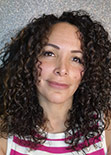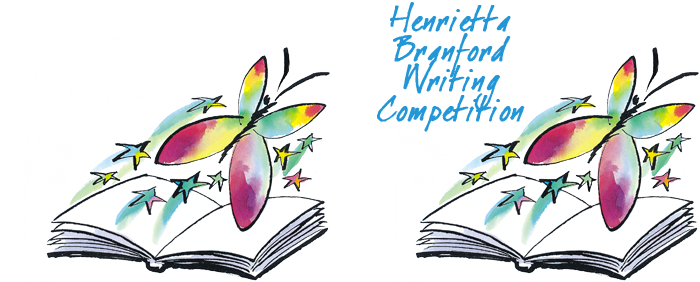Author: J.P. Rose

The Branford Boase Award judges praised the quality of the writing in The Haunting of Tyrese Walker and your skilful use of folklore. Where did the idea for the book come from and what was your starting point?
Years ago, I went to see a branch of my family for the first time, and over the day we began to talk about Jamaican folklore, and about Duppies – malevolent ghosts. I was fascinated and truly taken by these stories especially as they are so deep rooted in the culture. Some of these stories of course, are of African origin, finding their way into the Caribbean islands by way of the slave trade. I knew one day I wanted to somehow incorporate this folklore in my writing, but it was important for me to find the right story to place it in, as I wanted to respect and honour the folklore and the culture.
The years then went by, and my adoptive mum passed away, and the world as I knew it and how it once looked, was no more. I found grief truly brutal. All my wonderful memories now felt painful, and what the ‘tomorrows’ held seemed now a bleak prospect. My heart was broken, and life didn’t quite make sense, or seem to fit anymore, but as I had always done in not only times of joy, but of times of difficulty, I found solace in writing. It was a place of safety, a place where I had some semblance of control. I started to write poetry which is where my writing grew from since I was a child, and then the question of, ‘what if’, started to form and grow in my head… What if there was a young teenage boy living through this sort of pain? And what if everything he ever had known and had taken for granted, and had loved, overnight was ripped away from him? What would the world look like to him? What would he look like to himself? And as these questions formed more and more, so did Tyrese Walker.
This moment of clarity was the beginning of a wonderful journey with Tyrese. I wanted to explore grief and mental health for all readers, but I especially wanted Tyrese to be a vehicle for boys to examine loss and processing pain, as well of course as create an atmospheric ghost story. As I began to listen to Tyrese’s voice and hear the story he wanted to tell, little did I know that it would become a transportive and cathartic experience from the emptiness of loss to the celebration and light of life and all that still lives in my heart.
The Haunting of Tyrese Walker is genuinely chilling. What drew you to writing a ghost story?
I’ve always been a fan of the psychological nature of ghost stories, especially when it is based in the every day. It’s a delicious way of exploring the human mind and the unreliable narrator, it’s also a way of exploring more difficult subjects. I also was intrested in writing a haunting ghost story as I found that actually when you look, there aren’t that many out there for that vital age between upper middle grad to lower YA. Plus, the challenge of creating fear and tension purely with the written word was an exciting challenge.
What did you enjoy most working with Chloe on the book?
Chloe is a genius. I looked up the exact meaning in the Oxford dictionary, and it says, ‘exceptional intellectual or creative power or other natural ability.’ And that sums up Chloe. From the start she understood what I wanted to do, and at times it was like a puzzle, but her input was invaluable. She saw things that I didn’t see in the text and within the story I wanted to create, we had brainstorming sessions, she pushed me further and harder than I thought I could go. She wasn’t interested in saying, oh that’s fine and that will do, instead she strove for as far as we could go to create a world which we felt we could almost touch. Writing The Haunting of Tyrese Walker was a collaborative process, and without her amazing editorial skills, pouring magic over my text, the book wouldn’t be what it is today.
I am forever grateful and humbled my what Chloe brought along and I’m delighted she’s being recognised.
You’ve written crime novels for adults. What are the challenges and rewards of writing for young people?
My adult books bar a couple, are very commercial, and sometimes they have a huge list of chracters as well as multiple storylines running through them. I also have a very free rein of being able to go where I want in the story, and not have all loose ends tied up at the end. They also range from anywhere between 80 000 to 150 000 words, so I have the luxury of having more time to explore certain characters and certain behaviours. However, in writing for young people I’ve had to strip it back and be pin focused on each and every word and moment. Every moment has to earn its place which actually worked in my favour for Tyrese as ghost stories need that tight tension, to keep the heightenend suspense alive. I also had to balance the emotional state of Tyrese to be appropriate for the young people, so I had to think more, be more aware, and really make sure that I was tuned in to seeing the world through Tyrese’s eyes rather than through an adult writing for young people. It was important that this story felt authentic for young people, as if Tyrese was telling it, so I had to make sure I listened harder to my words. The joy and rewards of writing for young people, is seeing them reading it at school or hearing from libraries how young people have enjoyed. Although I had the most incredible adoptive parents anyone could wish for, my childhood was difficult due to racism and I didn’t have lots of friends or people around me that I could trust. However, although I didn’t see myself reflected on the page, I did trust stories and poetry, and I lost myself in words, and began to write stories for myself. So the idea of a young person reading my book whether they are looking for something or losing themselves in it or simply love stories, gives me such a thrill. The idea I can fill a young person’s time with the stories I have created, is a deep, humbling experience that my younger self could not even imagine was possible. I get very emotional when I think about it.
What advice would you give to debut writers?
I think it’s important to separate the business of writing from the actual writing and don’t let your craft be lost in it. It’s so easy to get caught up in the whirlwind of the publishing side of deadlines and advances, and who’s doing this and who’s doing that, and how many book deals and contracts everyone’s getting, and places in the books charts. All of this can overshadow the art of writing, and the wonderful joyous process of creating and telling stories. I’d also tell debut writers that it’s alright to explore, allow yourself the room to experiment. Nothing is wrong, it just might not be right, and that’s perfectly ok. Writing is a journey and at times it can be hard work, but the most important thing to do, is always hold onto that love for writing we all started off with. Never stop enjoying it.
Editor: Chloe Sackur

What was it about J.P. Rose’s writing that most excited you about her book?
I love character-led stories, so I was drawn by the book’s blend of psychological realism and horror, which really stood out to me. I also loved the idea of a horror set in this culture, and Jacqui knows Jamaica intimately, especially its folktales and dialect. She combines the local folklore with a hauntingly emotional family drama, as Tyrese struggles to come to terms with the loss of his father. I loved the conceit of how denying your emotions can be like a curse: you need to confront it to be able to move on. There’s also so much action and adventure throughout, as Tyrese and his friends explore the tropical forested landscape of the island and discover long-abandoned tunnels and a ruined mansion. It’s a really engaging story, but with this darker, thought-provoking theme running beneath it.
What were the main things you worked on with her as editor?
There are several terrifying set-pieces throughout the book, each involving an encounter with one of the famous duppies who haunt the island. We worked together to ensure that each of these distinctive scenes lead the characters further along on their adventure, and made sure that the clues Tyrese uncovers all come together in the book’s frightening conclusion. We also discussed the way in which the Shadow Man possesses Tyrese. Jacqui’s brilliant idea was that psychological trauma and grief can distort your perspective on the past and alienate you from your true self. So we worked on ways to ensure Tyrese’s descent to the dark side felt gradual and believable for the world of the story.
What do you think marks out the most successful YA writers?
Often writing for young adults focuses on a pivotal moment in the character’s life, when they’re having to be truly tested for the first time – whether that’s facing life-threatening supernatural danger, or finding the courage to ask someone out. Great YA fiction can explore the full range of emotions that its teen readers might be experiencing, and leaves space for them to decide how they feel about the characters and their choices.
What do you find most satisfying about being an editor?
There are lots of really enjoyable aspects of my job – I get a hungry, slightly desperate feeling when I read a manuscript on submission that I love and I know I want it for our list. I start imagining how I’m going to pitch it to my colleagues or how I’ll persuade the author they should work with us. It’s also really satisfying when an author turns in a new draft and they’ve absolutely nailed the edit – especially when they’ve taken my suggestions and found the perfect way to tackle them. Editing is a dialogue and a process, so I might raise an idea of how something might change, and when the author responds creatively in their own way, it’s just magic. I love it when we get in a great blurb from an author or reviewer, and they see what’s special about a book – as an editor I would have been championing it for the last year or two, and the author might have been working on it for sometimes years. It’s great to see reader reactions too, especially at events – you know the hard work has been worth it!
What advice would you give anyone wanting to write for young people?
Remember how it felt to be the age your character is, and write honestly from that perspective. Don’t try to get in a ‘message’. If you have a story idea, try to tell it in the most interesting way you can without worrying about whether it fits a particular mould or trend. Sometimes the most dramatic, moving or surprising moments in a book can be found in a line of dialogue in a quiet scene, rather than in a frenetic action scene. If in doubt – make it funny! I’ve got a theory that readers and audiences always remember the funny bits the most.
The Haunting of Tyrese Walker is published by Andersen Press, 978-1839132407, £8.99 pbk.



